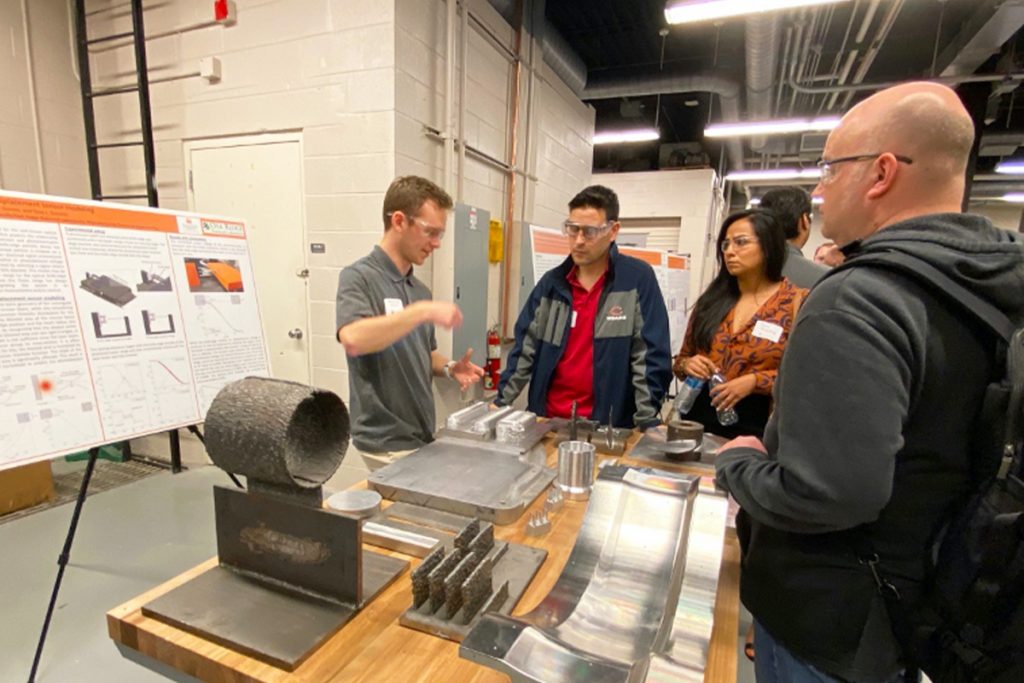SEAMTN Hosts Highly Successful Inaugural Symposium
The Southeastern Advanced Machine Tools Network (SEAMTN, “pronounced see mountain”) hosted its first annual symposium at the University of Tennessee in early May, furthering its mission to establish the greater Tennessee Valley as the US hub for machine tool research, development, and training.
“One university can’t do it,” said Matthew Mench, dean and Wayne T. Davis Dean’s Chair of the Tickle College of Engineering (TCE). “You need the partnerships; you need Oak Ridge National Laboratory (ORNL) and other universities working together to really have that impact. And you’re seeing it here today.”
Professor Tony Schmitz—the director of SEAMTN and a joint professor with ORNL and UT’s Department of Mechanical, Aerospace, and Biomedical Engineering—said the purpose of the symposium was to form a collaborative defense manufacturing network of partners from government, academia, and industry.
“When faculty and students from multiple universities and high schools are in the same room with local industries and non-profits, we all benefit from seeing what each group is doing and see how we can collaborate,” Schmitz said. “I’m really pleased to see these incredible partners integrated within SEAMTN.”
For more than 100 in attendance, the SEAMTN symposium featured speakers and demonstrations from some of their 46 partners and a tour of UT’s Machine Tool Research Center. Technical demonstrations included:
- Vision-based, AI-enabled safety system from Be Global Safety;
- Hybrid manufacturing cell;
- Additive friction stir deposition;
- MSC MillMax®;
- Oak Ridge High School (ORHS) robot;
- Student poster presentations.
Mark Buckner, who spent 32 years at ORNL and now teaches and coaches robotics at ORHS, knows the importance of making sure the skills our young people are being taught are the ones industry needs now and in the future.
“The only way this is going to be successful is partnering with folks like you,” Buckner said. “We must understand the gaps. We need to iterate and continuously improve our program, so that we are providing the skills and capabilities to drive innovation.”
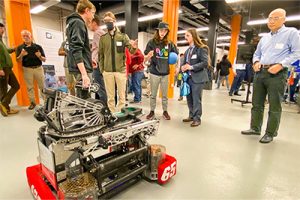
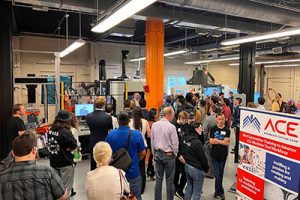
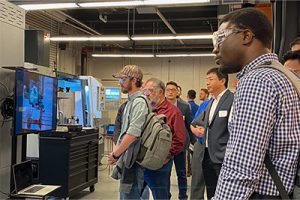
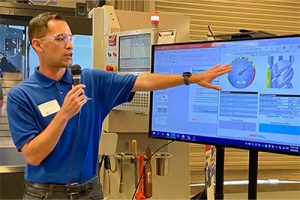
Workforce development is at the heart of that success. There is an urgent and growing need in the US machining and machine tool industry for skilled individuals—operators, engineers, designers and more—for 30,000 machining companies across the country. IACMI – The Composites Institute is working to promote a national initiative to restore the prominence of the US machine tools sector through the America’s Cutting Edge (ACE) program. Kim Harris, IACMI’s Regional Workforce Manager, shared how ACE, a training program for Computer Numerical Control (CNC) machining that was developed by Schmitz and is managed by IACMI, is addressing that need.
More than 2,300 people from all 50 states are engaged in the online training that began in December, 2020, and in-person training is expanding from Tennessee to hubs in North Carolina and Texas in the next few months, all at no cost to participants.
Kevin Maxwell, a UT student who took the ACE training last summer, says ACE was key to helping him land a research position at the Fibers and Composites Manufacturing Facility on campus.
“It gives you the credibility you need to get your foot in the door,” he said. “When I heard about ACE, I thought this could be nothing but good experience for me. I went and loved it.”
TCE Assistant Dean of Diversity, Equity, and Inclusion Jeremy Kirk stressed that building the future workforce depends on casting a wider net today.
“We’re all better when we’re all included, when all voices are heard and multiple experiences are validated,” Kirk said. “If we rest on our laurels and continue business as usual and aren’t intentional about building a diverse workforce, we’ll get stuck. The talent is out there; we just have to be intentional about reaching them.”
SEAMTN is one of 11 community organizations supported by a grant from the Office of Local Defense Community Cooperation (OLDCC), led by the US Department of Defense. Its purpose is to make long-term investments in critical skills, facilities, research and development, and small business support to strengthen the national security innovation base.
With investments of $50 million, OLDCC has already assisted 1,520-plus businesses and helped train 32,000-plus individuals. Machining and machine tools are at the foundation of America’s manufacturing capability and its global competitiveness.
